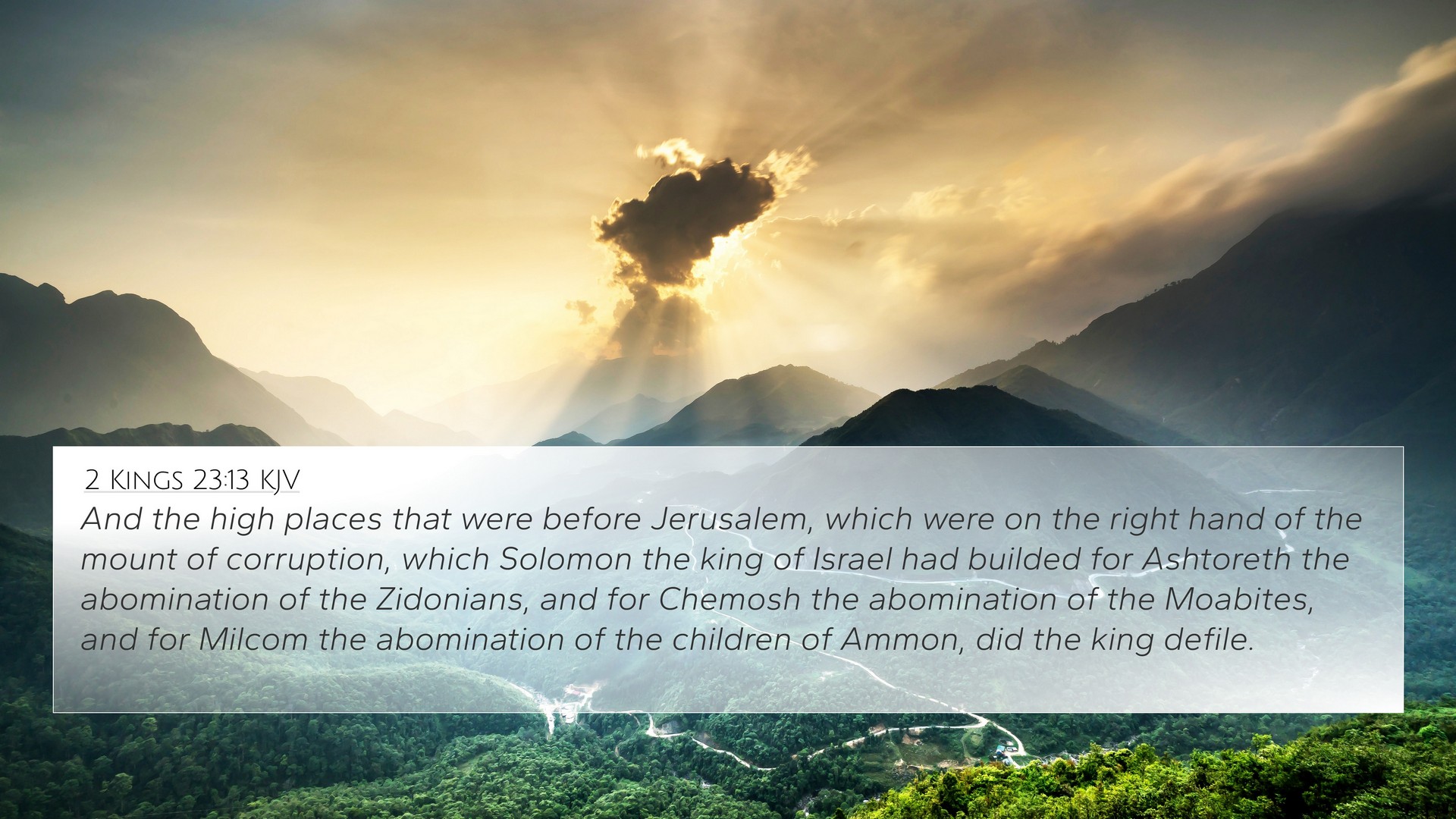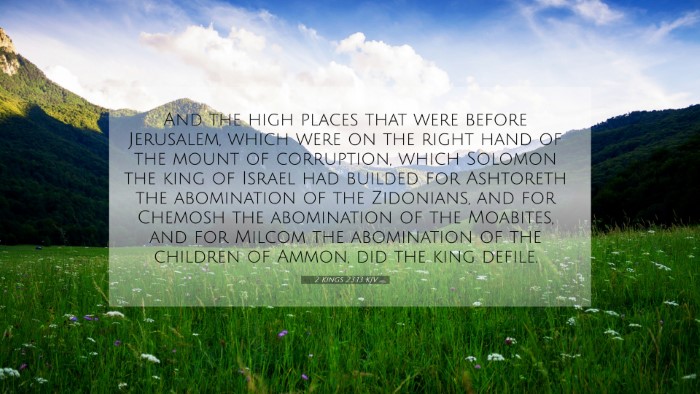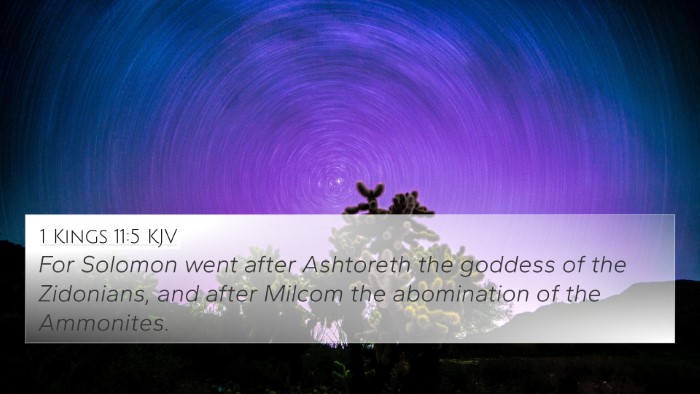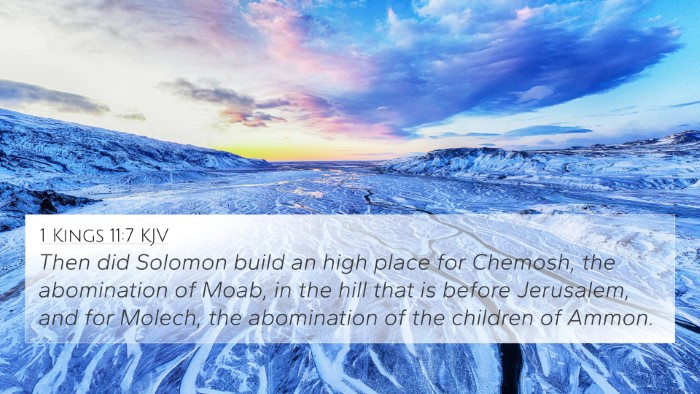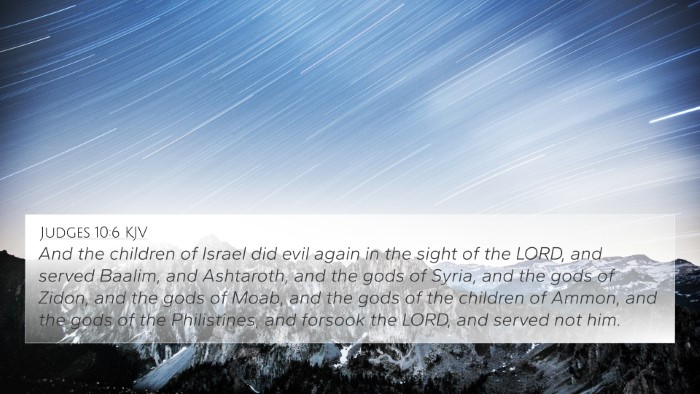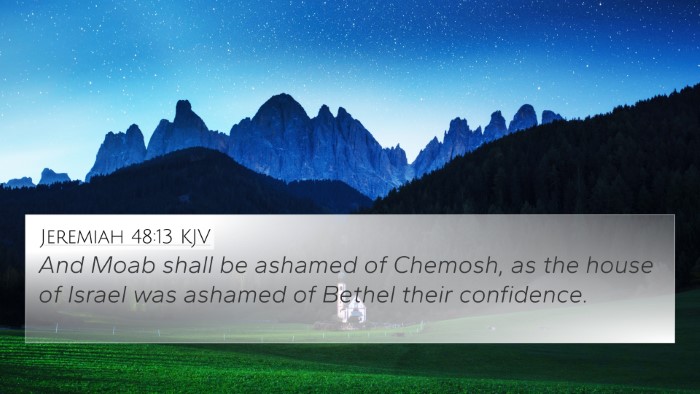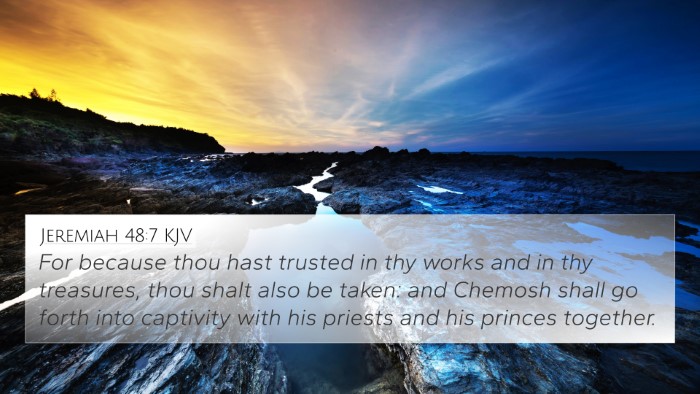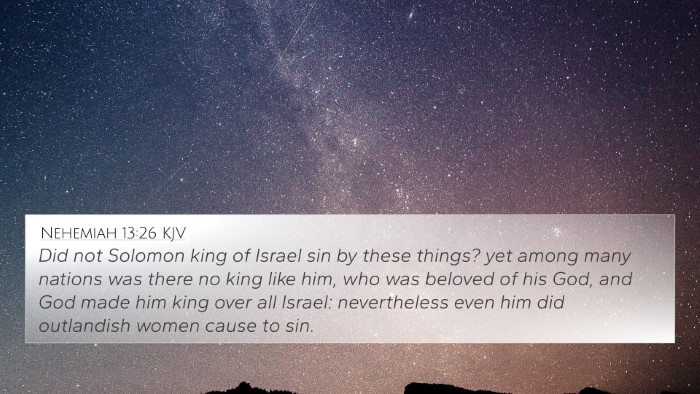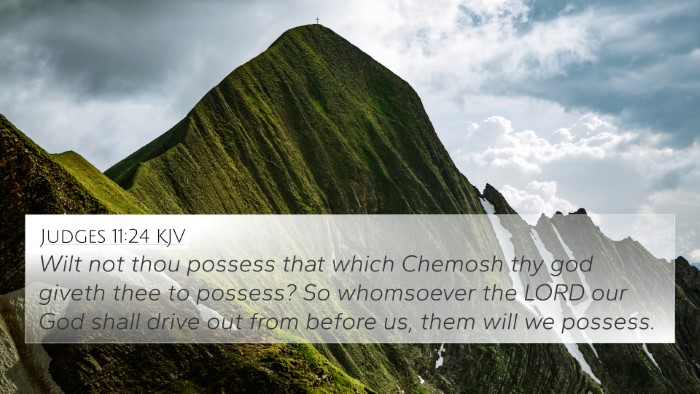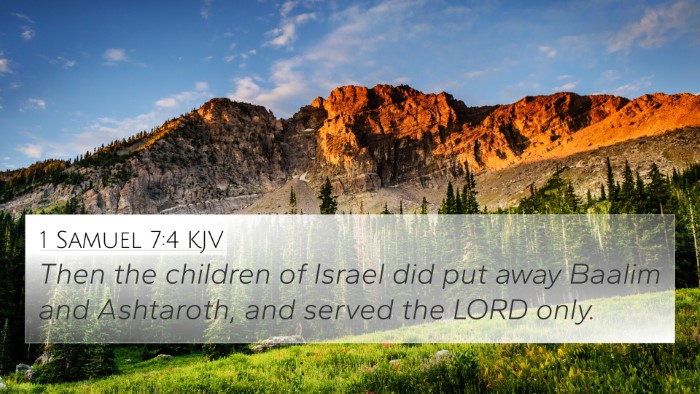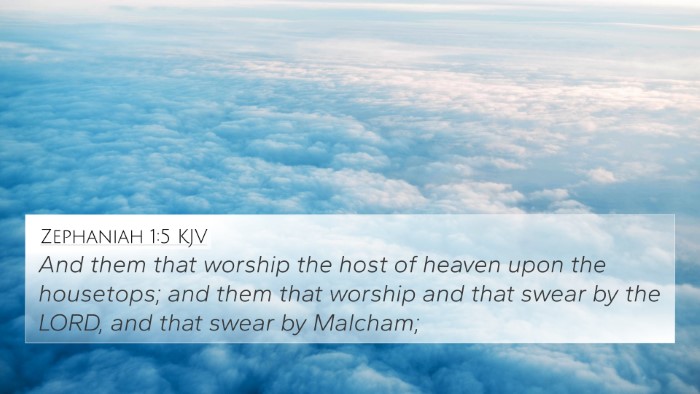Understanding 2 Kings 23:13
The verse 2 Kings 23:13 states:
"And the king defiled the high places that were before Jerusalem, which were on the right hand of the mount of corruption, which Solomon the king of Israel had builded for Ashtoreth, the abomination of the Zidonians, and for Chemosh, the abomination of the Moabites, and for Milcom, the abomination of the children of Ammon."
Summary and Interpretation
This verse highlights King Josiah's reformative actions concerning idolatry and false worship in Judah. It serves as a condemnation of the historical practices instituted by Solomon and flourished through subsequent reigns. Each high place mentioned represented a significant aspect of Israel's struggle with idolatry and the worship of false gods.
Key Themes:
- Idolatry: The verse emphasizes the seriousness of idol worship, linking it directly to the legacy of Solomon, who despite his wisdom, fell prey to the alluring practices of surrounding nations.
- Destruction of Idols: King Josiah's actions reflect the need for national purification from foreign influences and returning to Yahweh’s covenant.
- Judgment on Apostasy: The mention of specific gods encapsulates the grave spiritual dangers posed by syncretism—the blending of worship practices.
Commentary Insights:
Matthew Henry: He stresses that Josiah's dedication to removing these high places is indicative of a heart inclined toward true worship. It also serves as a caution that even a wisest ruler can lead to folly when swayed by worldly temptations.
Albert Barnes: Barnes elaborates that the high places were initially intended for the worship of Yahweh, yet over time fell into degradation as monuments to false gods. Josiah’s subsequent actions were a critical step in restoring true worship within the kingdom.
Adam Clarke: Clarke emphasizes the historical context, connecting these high places with the larger narrative of Israel’s downfall due to idolatry. He notes the significance of each mentioned deity, highlighting Ashtoreth as a fertility goddess and Chemosh as a god of war, making alias the multiplicitous dangers of Idolatry.
Cross References to Enhance Understanding
- 1 Kings 11:5-6 - Describes Solomon's worship of Ashtoreth and other gods, illustrating the origin of these high places.
- 2 Kings 23:4 - Josiah's command to remove the vessels made for Baal, a precursor to his further reformations.
- Jeremiah 7:18 - Highlights the ongoing worship of the queen of heaven and the prevalence of idolatrous practices.
- 2 Chronicles 34:3-7 - Provides a parallel account of Josiah's zealous reforms, showcasing his commitment to purging the land of idolatry.
- Exodus 34:14 - God's command against idolatry reinforces the seriousness of the covenant with Israel.
- Numbers 33:52 - God's instructions to Israel regarding the destruction of the inhabitants and their idols in the Promised Land.
- Amos 5:26 - A prophetic denunciation of Israel’s idolatry that resonates with the consequences outlined in the historical narrative.
Conclusion
2 Kings 23:13 showcases not only a pivotal moment in Judah’s history under King Josiah but also serves as a reminder of the ongoing struggle against idolatry. The insights from public domain commentaries reflect a deep concern for the integrity of true worship against the backdrop of cultural influences. Through the use of cross-references and thematic connections, readers can explore the multi-faceted relationship between scripture, worship, and faithfulness to God's commandments.
SEO Keywords
To gain deeper understanding through Bible verse cross-references, and explore connections between Bible verses, students of the Word can utilize tools for Bible cross-referencing in their study approach. Methods like comparative Bible verse analysis enhance comprehension and enrich discussions.
Understanding Cross-Referencing
Learning how to use Bible cross-references effectively can help uncover deeper meanings, while creating avenues for inter-Biblical dialogue, particularly in thematic studies across both testaments. Facilitating discussions that identify Bible verses that relate to each other can lead to richer sermon preparations and personal edification.
